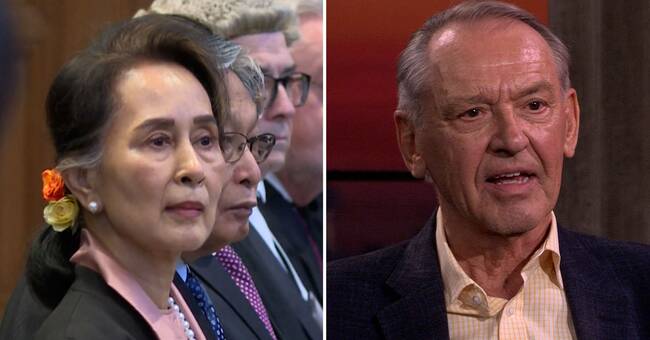When Ethiopia's Prime Minister Abiy Ahmed recently declared victory over insurgents in the northern Tigray region, the ironic comments were dense.
It is hotly debated whether he has acted correctly in the domestic conflict.
But violent fights are not a flattering look for last year's recipients of perhaps the world's finest award.
Many media have also accused the Nobel Committee of yet another prematurely awarded prize.
The reasoning is that laureates can hardly live up to the hype of peace, and that their later missteps instead sink the saintly glorious.
The Financial Times commentator even describes "the premature curse of the Nobel Prize", one of several similar to dark magic.
The list of controversies
Of course, Abiy Ahmed is not alone as a controversial winner.
Barack Obama's recent memoirs give rise to nostalgic sighs here in Sweden where the American ex - president's popularity almost hit the ceiling.
Less rosy is the memory of my Yemeni friends who associate him with the civilian casualties of the drone bombings.
When US Secretary of State Henry Kissinger and North Vietnamese Le Duc Tho in 1973 received the award for ceasefire in the Vietnam War, satirist Tom Lehrer declared political satire dead.
Veteran diplomat Jan Eliasson describes in this week's Foreign Office how the Foreign Ministry was put down with angry conversations that the prize winners were in fact to blame for the horrors of the war.
Few world leaders are queuing up today to meet with Myanmar's most famous ex-president, Aung San Suu Kyi, after she defended the military's assault on the Rohingya minority group.
"Aspiration" comes into play
And so on, the list goes on.
But if the large number of controversies gives Abiy Ahmed some consolation, it is more troublesome for the Norwegian Nobel Committee.
When I spoke recently with the chairman, Berit Reiss-Andersen, she did not agree with the curse description.
She pointed out that the prize is awarded for documents during the past year, and that the committee hardly has any say in which they can assess the future suitability of a prospective laureate.
On the other hand, a little controversy is, after all, good enough to promote debate about peace and freedom in the world, she added.
And she noted that the choice of laureates is partly about "aspiration and inspiration" rather than about what someone has already done.
A self-chosen curse
Sure, the committee does not have an easy job, but it is a tricky seat that you yourself sat in.
If the committee wants to get out of it, it can content itself with praising what has already happened, and refrain from trying to push world events in what is considered a heartwarming direction.
The alternative would be to fully shoulder the responsibility that comes with praising, at least in part, based on pious hopes.
Today, instead, they do a bit of both, and if there is now a curse resting on the prize, there is no evil magician, no Nobel laureate who casts the customs judgment.
Only the committee itself.
This week's Foreign Office is about the Nobel Peace Prize and the controversies surrounding it. Watch the program on SVT Play or 21.45 on Wednesday on SVT2.

